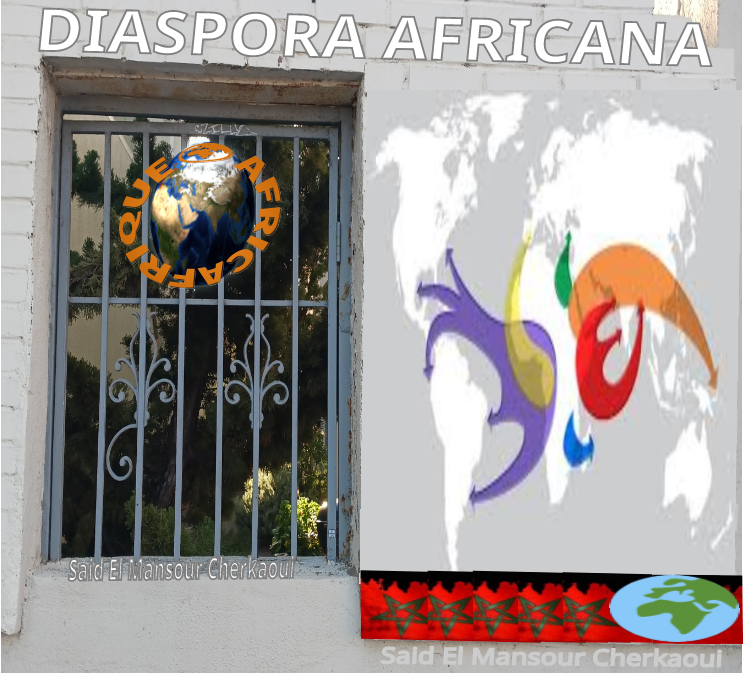African Investment and Diaspora Act - AIDA - 4/1/2024
By Said El Mansour Cherkaoui Ph.D.
Contact email: saidcherkaoui@triconsultingkyoto.com
🌍 H.R.656 - African Investment and Diaspora Act112th Congress (2011-2012)
Introduced in House (02/11/2011)
African Investment and Diaspora Act - AIDA - Directs the President to appoint a Special Representative for United States-Africa Trade, Development, and Diaspora Affairs within the Department of State. States that the Special Representative should be a person of distinction, culturally sensitive to the underserved African Diaspora in the United States, with substantial experience in matters of trade or economic development and in matters relating to African Diaspora relations with Africa.
Directs the Secretary of State to establish, within the Department of State, the Office of United States-Africa Trade, Development, and Diaspora Affairs, with the Special Representative as its head.
Directs the Special Representative to establish five regional United States-Africa Trade, Development, and Diaspora Affairs public outreach, education, and liaison centers.
AIDA may also refer to Accelerated Industrial Development for Africa, which is a strategic framework for achieving Africa's goal of inclusive and sustainable development.
Read more at this article:
African Investment & Diaspora Act (AIDA)
Said El Mansour Cherkaoui Ph.D.
April 1, 2024
🌍GOOD DAY AFRICA 🌍 DIASPORAFRICA 🌍 BONNE JOURNÉE DIASPORAFRIQUE
🌍The AIDA aims to change the way the U.S. does business with Africa, which has been decades of aid. African Investment & Diaspora Act (AIDA) was seeking to empower Africa and the African Diaspora in the U.S. to take part in the continent’s economic development through TRADE.
🌍 The AIDA initiative was mainly developed to perform, amongst others, the following key points:
• Integration of industrialization in national development policies especially in poverty alleviation strategies.
• Development and implementation of an industrial policy with priority accorded to maximizing the use of local productive capacities and inputs, adding value to and local processing of the abundant natural resources of the country, and to the development of small-scale and rural industries, including the informal sectors well as intermediate and capital goods industries with high linkages to other sectors of the economy as potential sources of employment creation.
• Improvement of Investment and Mining Codes to support local processing of mineral resources
• Setting aside, by mineral resources- rich countries, a portion of their earnings from commodity price surges for investment in programs/projects of economic diversification and industrial development
• Promotion of socially responsible industries.
• Taking maximum advantage of Africa’s Partnerships, especially with the Newly Industrializing and Emerging Powers of the South, for the development and transfer of technology for the establishment of joint industrial enterprises in Africa, and greater market access for African manufactured products
• Establishment/Strengthening of capital and financial markets (including innovative financial intermediaries) and improvement of business finance, especially for small-scale and rural industries.
Change is sweeping across the continent of Africa, but the way the U.S. does business with the continent hasn't kept up.
For years, African economies have suffered from a lack of access to opportunities, training, capital, and relationships that can help them become self-sufficient—often causing instability and political unrest. Given that economic empowerment and security go hand in hand.
🌍 AIDA Benefits for Africa and the United States
According to its promoters, the AIDA Bill benefits both Africa and the United States. According to the World Bank, Africa is on track to make a speedier recovery from the global recession than the U.S..
African economies are growing significantly above global average rates, as high as 13% in some countries. Return on investment in some African companies has averaged nearly 30 percent annually over the past several years.
Unfortunately, the United States has fallen far behind the BRIC countries (Brazil, Russia, India and China) in developing beneficial trade relationships with the continent—a fact that has caused it to lose out on opportunities to bring jobs to the United States and gain more access to Africa’s rich natural and human resources. With almost 1 billion consumers in Africa, there are a wealth of opportunities to create jobs on both sides of the Atlantic.
If your care about jobs in the U.S. and creating opportunities for African economies to gain self-sufficiency, then help get Bill H.R. 656 passed. It will:
• Appoint a Special Representative for U.S.-Africa Trade, Development, and Diaspora Affairs within the State Department;
• Facilitate and increase the number of international learning exchange, professional, training, and educational programs between Africa and the United States;
• Establish a publicly accessible database through which U.S. and African businesses, academics, and organizations can communicate;
• Consult with African governments and key stakeholders in the U.S. concerning matters of trade, economic development, and African-African Diaspora relations.
🌍🌍🌍🌍🌍🌍🌍🌍🌍🌍🌍🌍🌍🌍🌍
🌍 African Investment and Diaspora Act
The African Investment and Diaspora Act (AIDA) is a bill that was introduced in the House in 2011. The bill aims to direct the President to appoint a Special Representative.
The African Investment and Diaspora Act (AIDA) is a bill that was introduced in the House in 2011. The bill aims to direct the President to appoint a Special Representative.
H.R.656 - 112th Congress (2011-2012): African Investment ... Introduced in House (02/11/2011) ... African Investment and Diaspora Act - Directs the President to appoint a Special Representative for United States ...
Congressman Bobby L. Rush Introduces HR 656, "The African Investment and Diaspora Act ...
Today, U. S. Rep. Bobby L. Rush (D-IL) re-introduced "The African Investment and Diaspora Act of 2011" (AIDA), a bill that's designed to ...
🌍 H.R.656 - African Investment and Diaspora Act112th Congress (2011-2012)
Introduced in House (02/11/2011)
African Investment and Diaspora Act - AIDA - Directs the President to appoint a Special Representative for United States-Africa Trade, Development, and Diaspora Affairs within the Department of State. States that the Special Representative should be a person of distinction, culturally sensitive to the underserved African Diaspora in the United States, with substantial experience in matters of trade or economic development and matters relating to African Diaspora relations with Africa.
Directs the Secretary of State to establish, within the Department of State, the Office of United States-Africa Trade, Development, and Diaspora Affairs, with the Special Representative as its head.
Directs the Special Representative to establish five regional United States-Africa Trade, Development, and Diaspora Affairs public outreach, education, and liaison centers.
Requires the Special Representative and the Office to:
(1) promote U.S.-African trade and investment relations and foster socioeconomic development and economic growth;
(2) design and implement public outreach, education, and liaison programs and activities intended to foster U.S.-African economic, technical, social, and cultural ties;
(3) facilitate and increase the number of international learning exchange, professional, training, and educational programs between Africa and the United States;
(4) establish a publicly accessible database through which U.S. and African businesses, academics, and organizations can communicate and establish ties; and
(5) consult with African governments, the African Union, African intergovernmental subregional organizations, public-private partnership entities, private businesses and foundations, nongovernmental organizations, and U.N. agencies concerning matters of Africa-related trade, economic development, and African-African Diaspora relations.
AIDA may also refer to Accelerated Industrial Development for Africa, which is a strategic framework for achieving Africa's goal of inclusive and sustainable development. The Action Plan for the Accelerated Industrial Development of Africa includes national and regional meetings with the participation of the private sector and civil society. These meetings help develop implementation plans, including timeframes, budgets, and the identification of main actors. At the regional level, a high-level panel on sustainable industrial development and diversification is established to monitor the progress of implementation and report to the AU Summit every two years.
According to the 2011-2012 H.R.656 bill, the Special Representative is directed to establish five regional United States-Africa Trade, Development, and Diaspora Affairs public outreach and education.
On December 13, 2022, President Biden signed Executive Order 14089 to establish the President's Advisory Council on African Diaspora Engagement in the United States.
🌍President's Advisory Council on African Diaspora Engagement:
🌍🌍🌍🌍🌍🌍🌍🌍🌍🌍🌍🌍🌍🌍🌍🌍🌍🌍🌍🌍🌍🌍🌍🌍🌍🌍
Email Contact: saidcherkaoui@triconsultingkyoto.com












